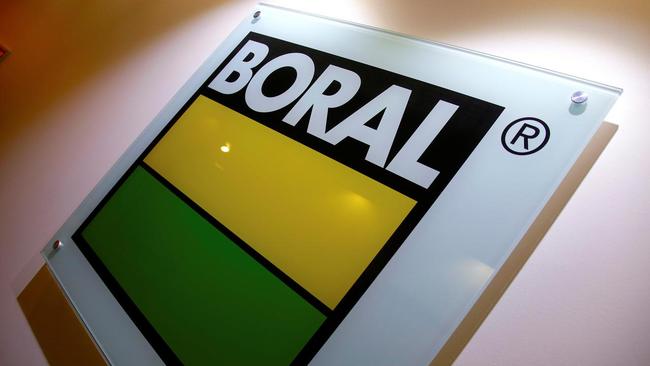
Seven Group’s share in its $6bn-plus takeover target Boral has moved to 91.19 per cent, as revealed by an Australian Securities Exchange filing on Tuesday.
The Kerry and Ryan Stokes-controlled Seven can now move to compulsory ownership of the entire business, with a holding of 90 per cent giving it the right to automatically require the remaining shares under takeover law in a deal that values the target at up to $6.95bn.
But while the deal sees the country’s largest building materials provider disappear from the ASX as a stand-alone company, it leaves behind an interesting legal precedent for laws surrounding truth in takeovers.
The deal is a point of focus, because Seven Group Holdings on February 19 lifted its offer for Boral to $1.70 cash and 0.1116 Seven shares, equating to a price of $6.25, when its share was already 71.6 per cent.
At the time, it said this offer was ‘best and final’.
The Australian takeover laws say that once a bidder has declared their offer ‘best and final’, they can’t increase it.
But what about increasing the dividend?
That’s exactly what Seven did two months later in April, when it said as part of a restructured deal, it would pay a fully-franked dividend of 26c per share with a record date of 18 April, which would be deducted from the offer cash price, reducing it to $1.44 per share.
While reducing the headline amount of cash, the dividend payment would allow Boral shareholders to benefit from franking credits of 11.1c per share.
Shareholders who accepted the offer would also be in line for a Seven Group dividend following the close of the offer, worth about 3.3c per Boral share, and 1.4c per share worth of franking credits.
Seven said that the total value receivable by Boral shareholders through the Seven Group offer, therefore, was $6.16 to $6.39 per Boral share plus approximately 13c per share in franking credits for Boral shareholders who were able to obtain the benefit of the franking credits.
It means that shareholders were effectively receiving more than the $6.25 per share that the group had promised back in February when it said the offer was ‘best and final’.
Yet would the Australian Securities and Investments Commission investigate?
Probably not, is the answer from experts around the market.
Experts around the market say that should Boral have been contested by another group, the matter would have almost certainly been taken to the Takeovers Panel to test its legality.
But because Seven was effectively bidding against itself, it was seen as somewhat of a victimless crime.
Now that Seven has sprung this move without any pushback from regulators, it may mean other suitors may try the same manoeuvre in the future.
In recent years, ASIC has come out with a clear policy on ‘best and final’ takeover rules to tighten up the guidelines and reduce the opportunity for any wiggle room.
One lawyer spoken to by this column said this was several years ago, and since then, bidders have realised that they need to comply with it.
What happens on other takeover bids from here with ‘best and final’ statements will be closely observed.
It may make lawyers offer more clarity about what they say when they want to make a ‘best and final’ bid, but perhaps the better thing to do if you are a bidder is just say nothing.
If you indicate a sweetener could be on its way, a target’s shareholders are unlikely to accept the current deal on the table, but if you say it’s ‘best and final’, you can’t increase.
By saying nothing, it keeps everyone guessing.




To join the conversation, please log in. Don't have an account? Register
Join the conversation, you are commenting as Logout